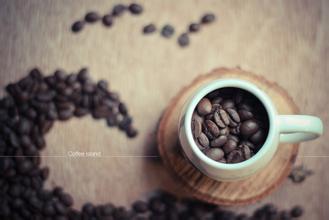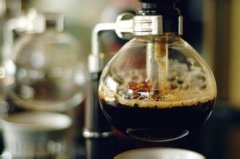The types and production principles of all kinds of fancy coffee
Many people like to drink coffee, but they don't know much about coffee, especially when they go to the coffee shop just according to their own name or according to the well-designed menu. However, if you drink more often, you will begin to get familiar with your favorite taste, sometimes try other flavors, and gradually you will want to know the difference between these coffees with different names. The following is the type and production principle of part of the coffee that I sorted out in a noon time. I hope it will be helpful to the friends who need it.

We usually drink a wide variety of coffee, most of which are just varieties of Italian espresso. This is because ESPRESSO has a strong flavor and will not be diluted with milk or other ingredients, so espresso has become a "base". Some people think that ESPRESSO is too strong and worry that too much caffeine will affect sleep or health, so they choose French coffee, milk coffee or latte. But in fact, a cup of ESPRESSO uses about 7: 18g to make 30cc coffee, while a cappuccino or latte uses 60cc, so although there is a lot of milk and foam to dilute the rich feeling of coffee, the amount of coffee has not decreased at all, but increased. Real coffee connoisseurs will mostly use ESPRESSO to measure the power of the bar, because ESPRESSO can not be covered with water and milk, so it can best show the original taste of coffee.
● Italian espresso ESPREES
To make espresso, use a mocha pot invented in Italy. This kind of coffee pot uses steam pressure to extract coffee, so that the pressurized steam extracts the inner essence of coffee directly through coffee powder, so the coffee brewed out has a strong aroma and strong bitter taste. The surface of coffee will produce a thin layer of coffee oil, which is the source of Italian coffee fragrance.

● cappuccino CAPUCCINO
Cappuccino is a very moderate cup of coffee, has a very strong taste, because cappuccino is added with milk foam, some people drink it to enjoy the taste of milk foam, enjoy the density and compactness of milk foam, so the proportion of milk is very important. In espresso, pour steamed milk, the proportion of coffee, milk and milk foam each accounts for 1 / 3. At this time, the color of coffee is like a cappuccino monk with a turban on his dark brown coat, hence the name.

● latte LATTE
LATTE means milk in Italian. As the name suggests, latte coffee is made in the same way as cappuccino, except that the classic example of coffee, milk and milk foam has changed to 1:2:1. It can be said to be a cup of coffee without burden, you can drink the warmth of milk, like a cup of milk coffee, but there is coffee flavor when drinking milk.
If you add some frothy cold milk to the hot milk, it becomes an American latte. This is how Starbucks American lattes are made.

● mocha MOCHA
Mocha is diluted with a lot of milk, is a deformation of coffee, can be said to be the most fancy kind of Italian coffee, which can add cinnamon, cocoa, is no longer a simple coffee. The original meaning of mocha is chocolate, just add chocolate to the latte.

● Campbell Blue Coffee ESPRESSO CN PANNA
Add the right amount of whipped cream to the Italian espresso to make a cup of Campbell blue coffee. Because it is only added with whipped cream, it is sometimes called a "one-headed carriage". The fresh white cream floats gently on the deep coffee, just like a white lotus flower that comes out of the mud and makes one cannot bear to drink it.

● Marchiato Coffee MACCHIATO
In Italian espresso, without fresh cream and milk, only two tablespoons of soft milk foam becomes a cup of macchiato coffee. When the foam comes into contact with the air, it will affect its consistency, so it is best to drink it dry, like a shout cup of cocktails.

● Ole Coffee CAFE AU LAIT
Ole Coffee can be regarded as an European latte, which is quite different from American latte and Italian latte. Ole Coffee simply pours a cup of espresso and a large cup of hot milk into a large cup, and finally puts two tablespoons of whipped cream on the surface of the liquid. The biggest difference between Oulei coffee and latte is that milk and espresso are required to be injected into the cup together. Milk and coffee meet at the first time, resulting in a relaxed and free mood.

Important Notice :
前街咖啡 FrontStreet Coffee has moved to new addredd:
FrontStreet Coffee Address: 315,Donghua East Road,GuangZhou
Tel:020 38364473
- Prev

What is the best temperature for iced coffee and hot coffee?
Usually when we talk about the suitable temperature for coffee, most of it should be around 75 ℃. McDonald's infamous cup of coffee, 88 ℃, was claimed by the old lady for $3 million. According to some information from the trial, it is said that the guidelines in the McDonald's internal product quality manual were to brew coffee with 96 ℃ of water to ensure that the coffee reached consumers at 82 ℃-88 ℃. This
- Next

Problems in making coffee at home Coffee making
First of all, we would like to introduce what is meant by brewing coffee. Boil-put something in water and boil it over fire. But the process of brewing coffee is to wash the taste out of the coffee with water of 92-96 degrees. So many people will misunderstand this word. If you really put the coffee into the water to brew, the drink you get will no longer be a cup of coffee, but a cup of scorched bitter water (because the water at this time
Related
- Beginners will see the "Coffee pull flower" guide!
- What is the difference between ice blog purified milk and ordinary milk coffee?
- Why is the Philippines the largest producer of crops in Liberia?
- For coffee extraction, should the fine powder be retained?
- How does extracted espresso fill pressed powder? How much strength does it take to press the powder?
- How to make jasmine cold extract coffee? Is the jasmine + latte good?
- Will this little toy really make the coffee taste better? How does Lily Drip affect coffee extraction?
- Will the action of slapping the filter cup also affect coffee extraction?
- What's the difference between powder-to-water ratio and powder-to-liquid ratio?
- What is the Ethiopian local species? What does it have to do with Heirloom native species?

